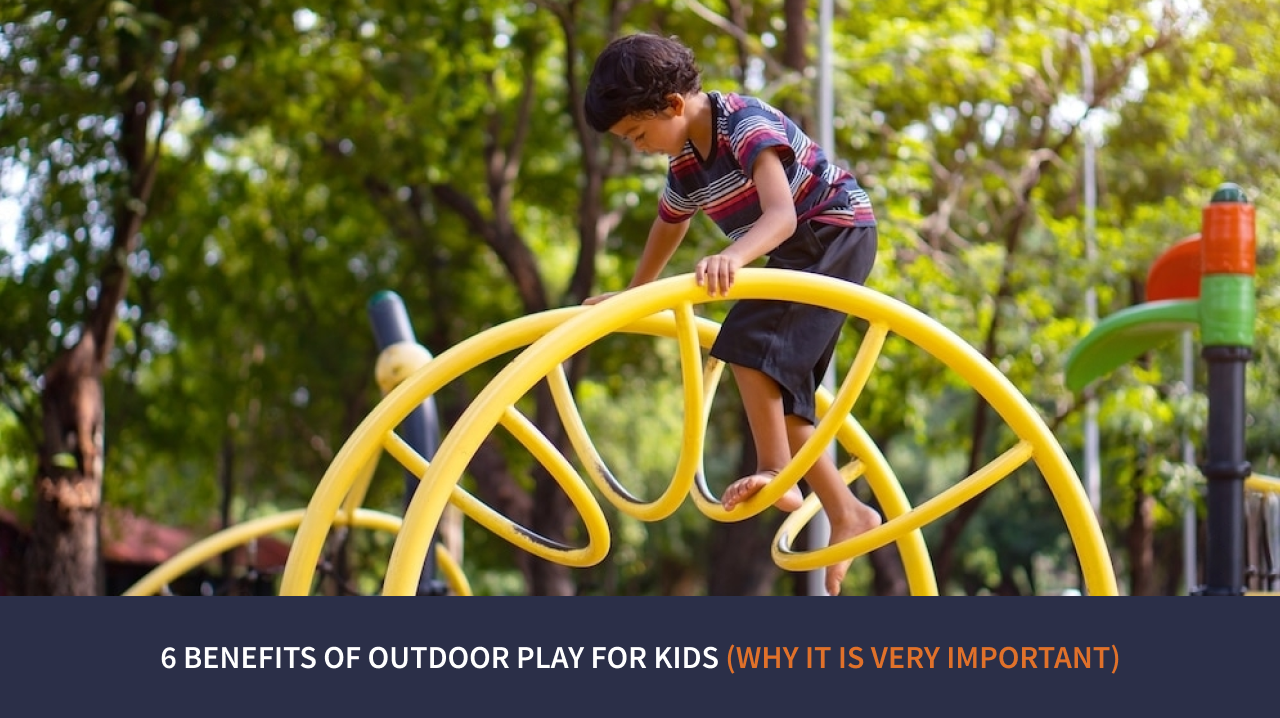6 Benefits of Outdoor Play For Kids (Why It Is Very Important)

Playing cricket, football or any other sports during the evening was common among children and young adults of the previous generation. But that does not seem to be the case with today’s and next-generation children. On the contrary, spending six to seven hours daily on electronics, such as smartphones, television, and laptops, is a growing trend.
However, this over-reliance on electronics is detrimental to physical and mental health, affecting children’s overall development. That is why outdoor playing is crucial because it improves their physical health and maintains their mental well-being.
Six Benefits of Outdoor Play for Kids
- Physical Health and Development
Emphasizing academics solely without little to no focus on physical activity proves to be harmful to kids in the long run. On the other hand, when they spend time outside engaging in different activities throughout their elementary and preschool years, it provides varied benefits.
One of the best advantages is that it improves their physical strength, prevents them from obesity and regulates their immune function. Besides, kids who are active throughout their childhood are more likely to exercise regularly later in life.
Therefore, encouraging outdoor play helps to develop a mindset of maintaining a healthy physical lifestyle in adulthood.
- Cognitive Growth and Creativity
The connection between physical and mental health is undeniably significant; therefore, playing outside improves their memory and cognitive skills. For instance, participating in outdoor games requires them to focus, stimulating their neuron growth. Similarly, they improve their motor skills while participating in various group tasks and activities.
Playing outside also fosters creativity and positively impacts their thinking, understanding, and communication ability.
- Emotional Well-Being and Mental Health
While watching tv or playing video games, kids use two to three senses; however, they experience more sensory engagement while playing outside regularly. Furthermore, it improves their emotional well-being in the following ways:
- It helps build a sense of independence as they can explore and experiment with new games.
- Outdoor plays are unstructured, allowing children to discover new things about them; therefore, it is one of the most useful extracurricular activities.
- Winning or losing in outdoor games allows kids to experience a range of emotions in response to success and failures.
- Social Skills and Communication
The age of technology has pushed children into isolation as they feel comfortable sitting at home with their gadgets. On the contrary, playing outside helps children develop social skills, including empathy, cooperation and teamwork.
Moreover, when playing outside, children naturally communicate with each other, as the environment is less competitive, leading to a fun-filled activity. Besides, they become aware of their feelings and what their peers feel.
- Sensory Exploration and Learning
Outdoor playing requires kids to use most of their senses, including vision, touch, and listening, which boosts their sensory stimulus. Also, be it jumping, climbing or sliding, they have fun, boosting their intellectual development.
- Appreciation for Nature and Environment Stewardship
Parents can take their kids to the nearest park and beach and engage in activities, including building nature sculptures with twigs, cones and rocks. Also, it is a fun learning opportunity for them to appreciate nature and teach them how to take care of the environment.
In Conclusion,
Playing outside has multivarious benefits, which help improve children’s physical and mental health. Furthermore, it helps them focus and build immunity against diseases as opposed to playing games for hours on mobile or laptop.

